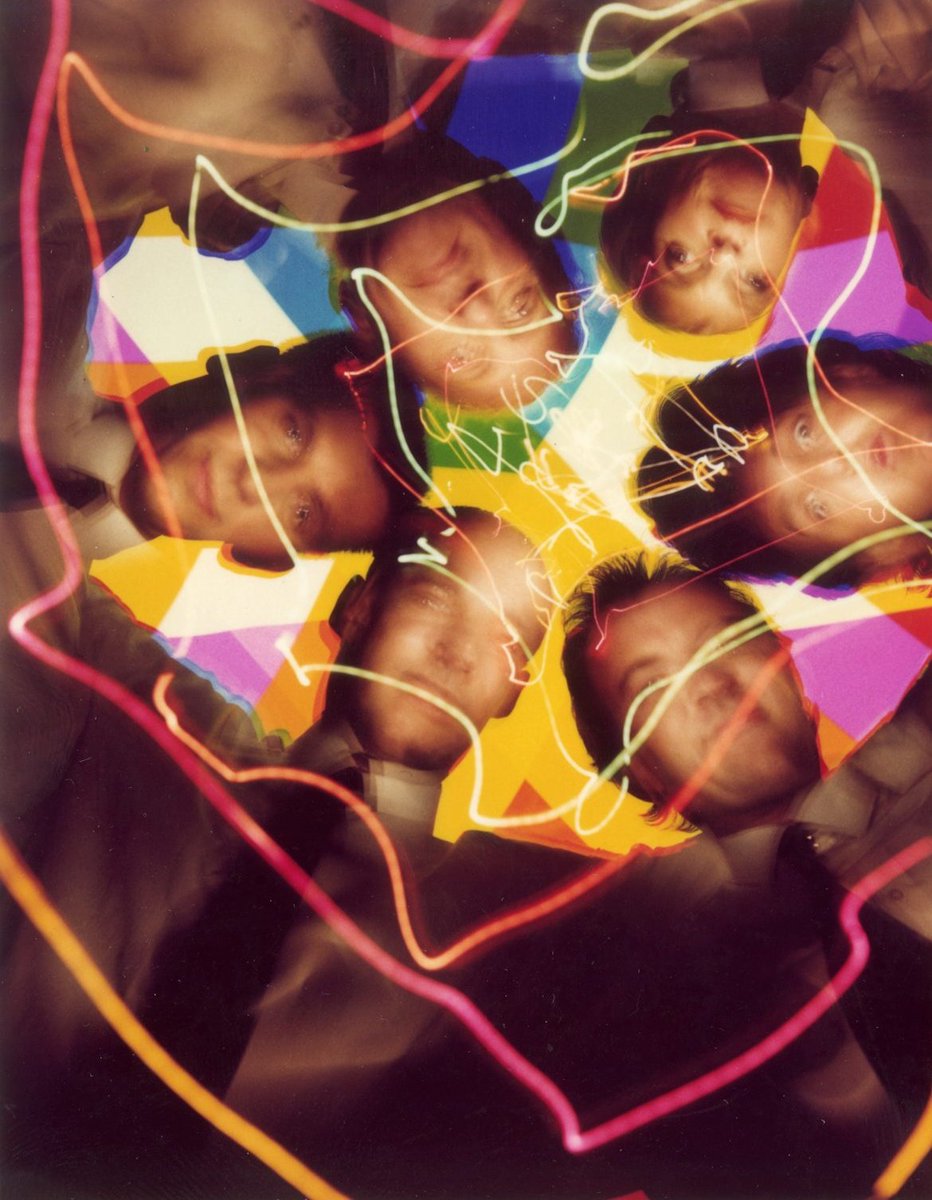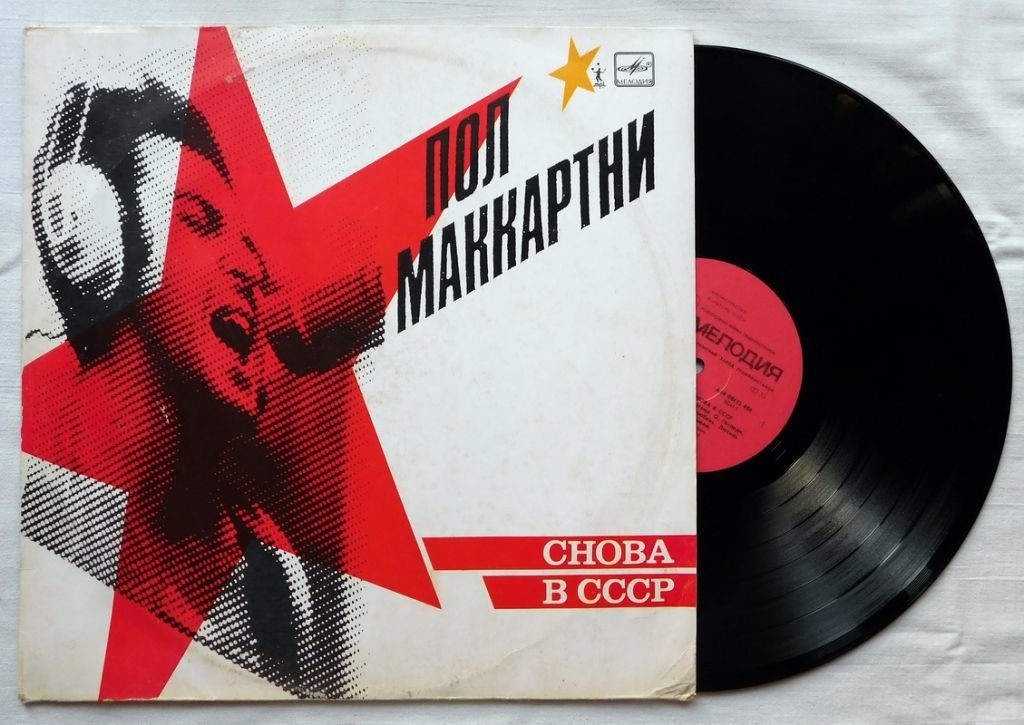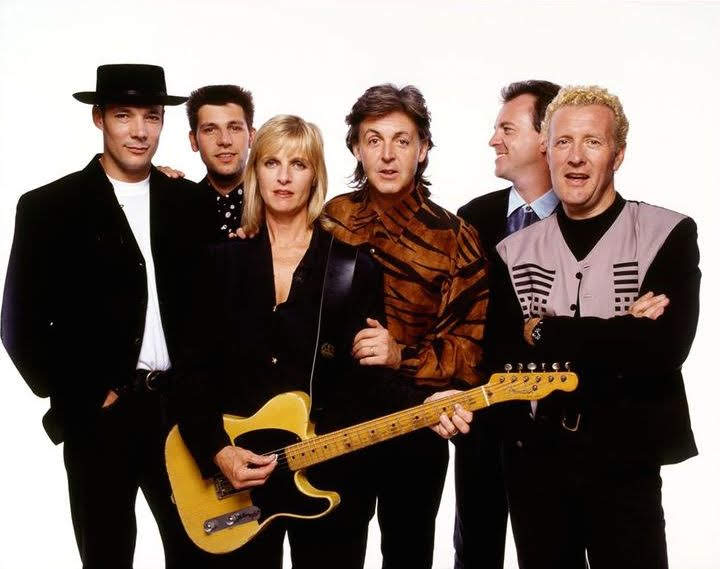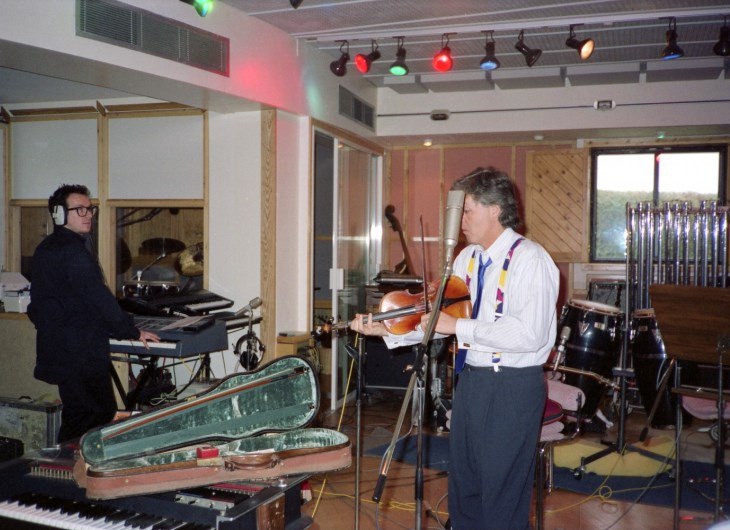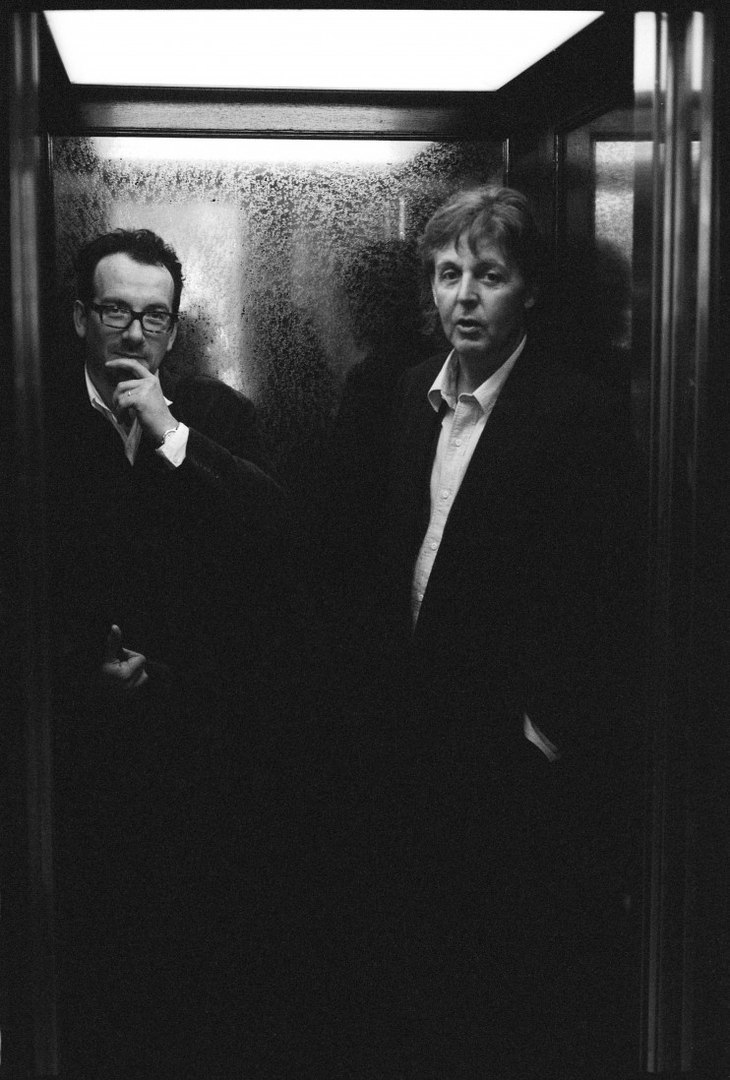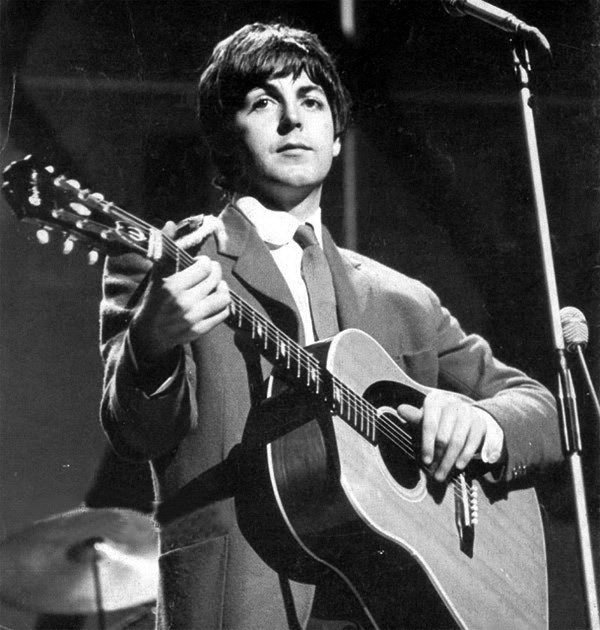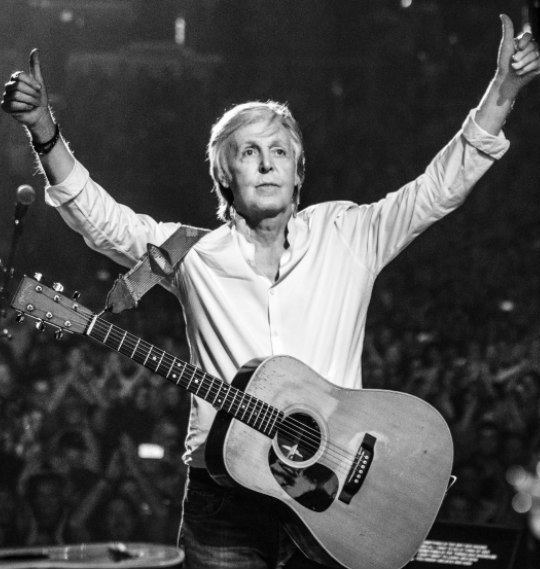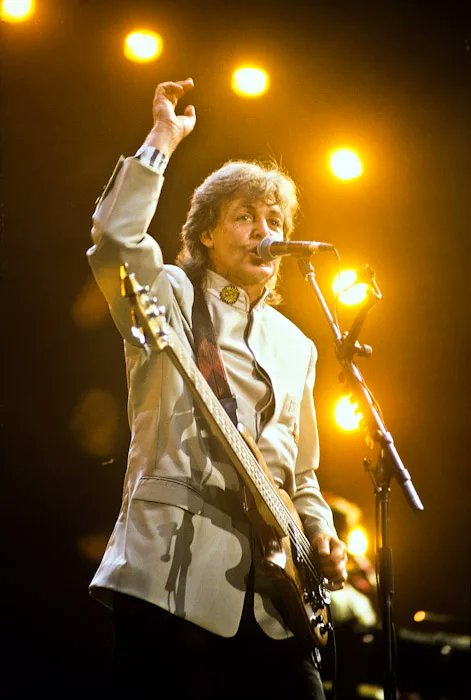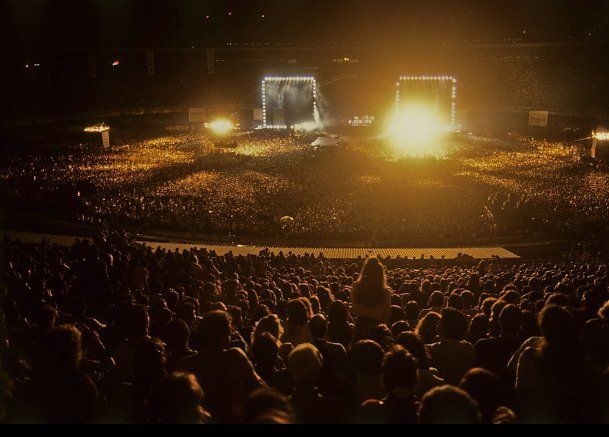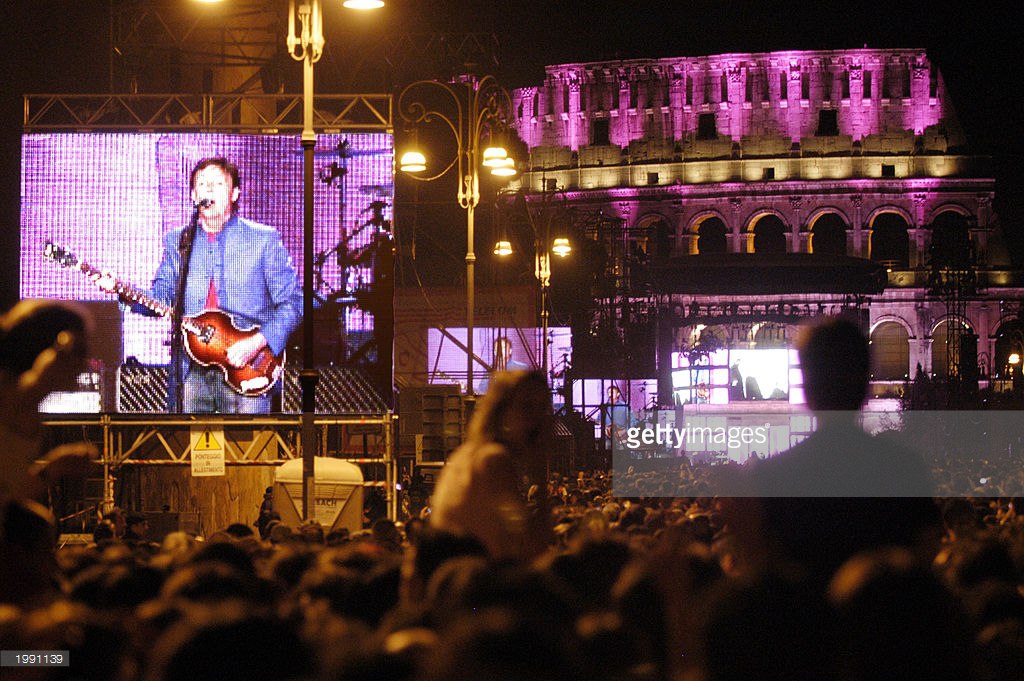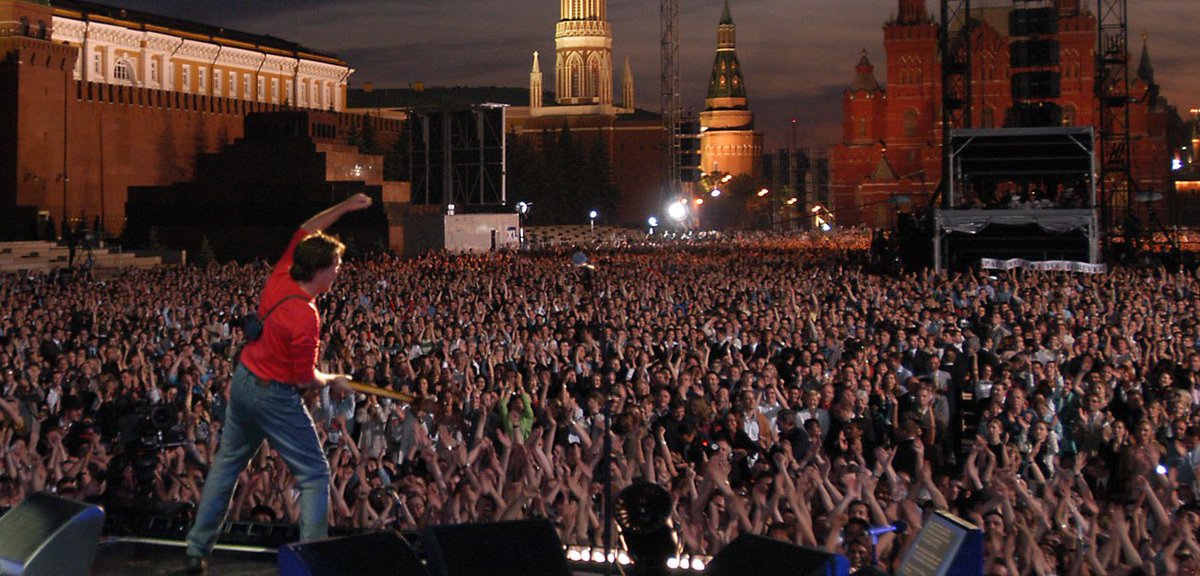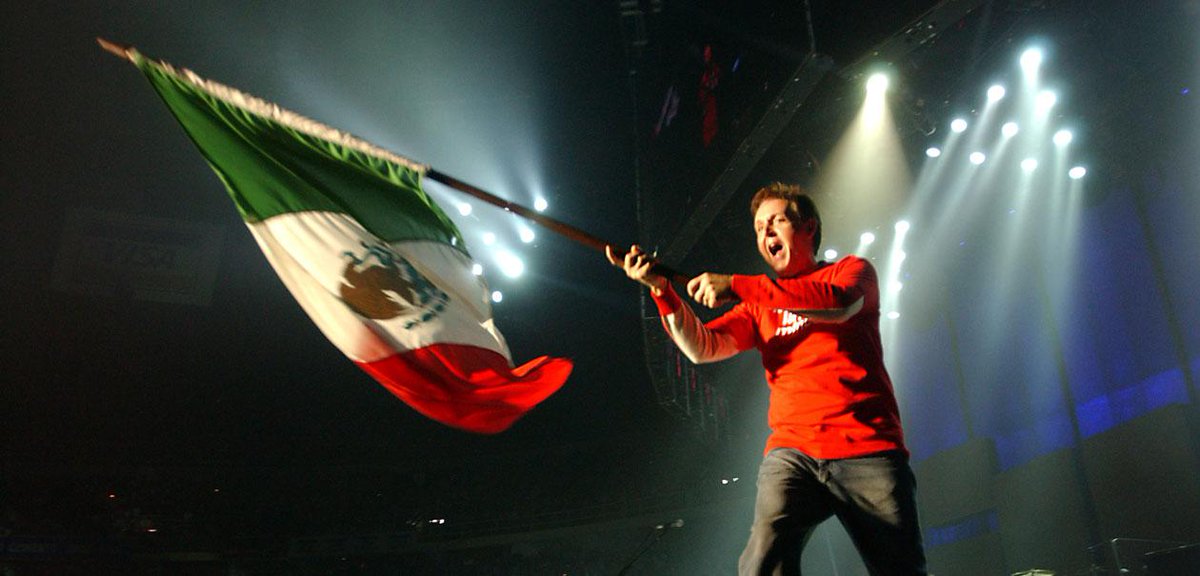it's the year 1987, Paul's recent album Press to Play didn't get positive critical reviews, top-10 hits and commercial success his team hoped for. Add to it his film "Give My Regards to Broad Street", which really affected his image. Paul knew that something has to be done.
"Until Live Aid came along, I didn’t think of doing anything live."
In 1987, McCartney initiated a series of Friday-night jam sessions at London studio with an eye toward eventually finding enough new, inspiring players to start a formal band.
In 1987, McCartney initiated a series of Friday-night jam sessions at London studio with an eye toward eventually finding enough new, inspiring players to start a formal band.
Among those who did show were Terry Williams, producer Trevor Horn, Elvis Costello and ex-Smiths guitarist Johnny Marr, who borrowed some of his dad’s old records to bone up on McCartney’s favorite Fifties tunes. Out of those Friday jams came the album "Snova v SSSR"
Drummer Chris Whitten, who played on Snova v SSSR, was the only member of road band who actually “auditioned” at the jams. Hamish Stuart and Robbie McIntosh subsequently arrived during the recording of Flowers in the Dirt, Wix at the tail end.
New tour band was formed.
New tour band was formed.
https://open.spotify.com/album/0kaRUxrggtrnJbojB8SHLZ?si=TZ7fK1vhR0qlvYCFxoUvvQ&utm_source=copy-link
The next part of Paul's "plan" - new successful record.
Paul teamed up with several different producers he worked with at the jams, but the highlight was his alliance with Elvis Costello.
The album is Flowers in the Dirt.
Paul teamed up with several different producers he worked with at the jams, but the highlight was his alliance with Elvis Costello.
The album is Flowers in the Dirt.
https://open.spotify.com/album/7sS1d6HeGvQVmD4t94VrAo?si=MKRntLCyT5-dyBFviqSu6w&utm_source=copy-link
“Paul McCartney must have realized that his records hadn’t been treated seriously for years, so he decided to make a full-fledged comeback effort with Flowers in the Dirt.”
Put It There
Put It There
“A welcome, if not wholly fantastic, return from the fabbest of the Fab Four“
The album got mostly positive reviews, it was a commercial success, but not at the level his team hoped for. All in all, the goal was achieved.
Figure of Eight
The album got mostly positive reviews, it was a commercial success, but not at the level his team hoped for. All in all, the goal was achieved.
Figure of Eight
But the most important thing that happened, in my opinion, was not the tour, or even the album. It was his decision to play Beatles songs. After 19 years, Paul was ready for this move.
“You can’t keep angry forever, twenty years after an event that hurt. Time is a great healer.”
“You can’t keep angry forever, twenty years after an event that hurt. Time is a great healer.”
Paul about his old and new material:
"Originally, we were going to open the tour with ‘I Saw Her Standing There.’ But I really got upset by the idea. I was going home one night and I thought, ‘That’s really betraying our new material, sending it right down the line.’
"Originally, we were going to open the tour with ‘I Saw Her Standing There.’ But I really got upset by the idea. I was going home one night and I thought, ‘That’s really betraying our new material, sending it right down the line.’
"Like saying, ‘Hey, I haven’t been around for thirteen years and I haven’t done anything worthwhile. Here’s the Beatles stuff.’ It’s the obvious thing. Boom, bang, Beatles, Beatles. Then you say, ‘Now we’d like to do some new material.’ Boo! Hiss! That’s a fact of life."
“But the only answer to that would be to give up after the Beatles. I only had two alternatives.
Give up, or carry on.
And having elected to carry on, I couldn’t stop.”
Give up, or carry on.
And having elected to carry on, I couldn’t stop.”
Paul about playing Beatles songs live:
"I’m touching a lot of different nerves out there. Young couples and not-so-young couples who were young when ‘Hey Jude’ came out. You see lots of guys doing high fives to each other, a lot of communication, a lot of warmth."
"I’m touching a lot of different nerves out there. Young couples and not-so-young couples who were young when ‘Hey Jude’ came out. You see lots of guys doing high fives to each other, a lot of communication, a lot of warmth."
He rediscovered not only how actually big the impact of the Beatles was, but that the Beatles weren't "them", it was also "him".
Paul "accepted" that his new records will not have the same effect as old ones, it was difficult to say for him, as he said it in the interviews.
Paul "accepted" that his new records will not have the same effect as old ones, it was difficult to say for him, as he said it in the interviews.
"When the Beatles broke up, it was a little bit difficult. It was a bit like a divorce—you really didn’t want to do anything associated with the ex-wife. You didn’t want to do “her” material. So all of us took that view independently. John, George and Ringo and me all stopped..."
"...doing Beatles stuff — because I think it was just painful for a while. It was painful memories. But enough time’s gone by now to do ’em again. And because of the last tour I did with Wings in 76 —we avoided them —it feels kind of unnatural to do them again."
"But it’s a question of either getting back to them or ignoring them for the rest of my life — which I think would be a shame."
That's why I see that year as a turning point. It started the row of world tours and established him as one of the best performers of all time...
That's why I see that year as a turning point. It started the row of world tours and established him as one of the best performers of all time...
Millions of people around the world got the opportunity to see him, the experience that probably won't happen twice.
His show is a journey that begin in early days, span over decades, include classics and new songs.
He didn't stop writing new music, constantly working...
His show is a journey that begin in early days, span over decades, include classics and new songs.
He didn't stop writing new music, constantly working...
...on new records, finding new ways, experimenting or going back to the roots.
His career after 1989 doesn't say that "Everything great already happened", it is "Yes, this is my legacy. And I continue working on it".
His career after 1989 doesn't say that "Everything great already happened", it is "Yes, this is my legacy. And I continue working on it".
And in the end:
“The only alternative is that I turn my back on it forever, never do ‘Hey Jude’ again — and I think it’s a damn good song. It would really be a pity if I don’t do it.”
And he was right!
“The only alternative is that I turn my back on it forever, never do ‘Hey Jude’ again — and I think it’s a damn good song. It would really be a pity if I don’t do it.”
And he was right!

 Read on Twitter
Read on Twitter
